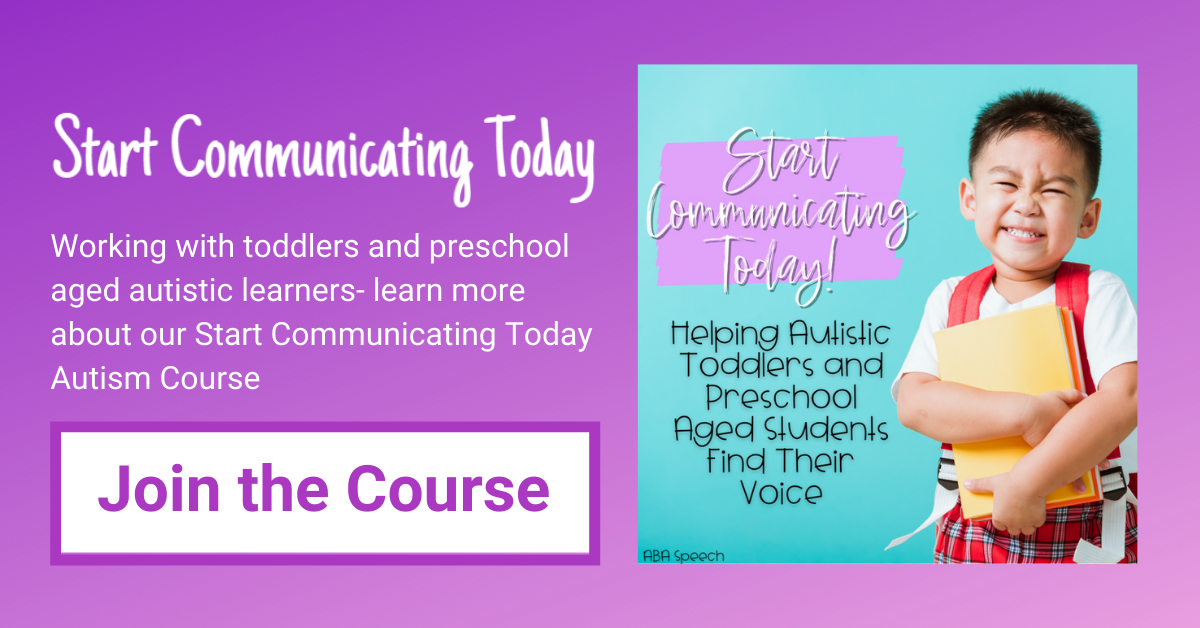“Well, I guess you better figure it out”....
Episode #051: Autism in Girls with Robin Roscigno of AuTEACH
https://youtu.be/7yZViikttWY
NEW: 1.0 ASHA CEUs available!
Listen and earn CEUs for select Autism Outreach podcasts when you join SpeechPathology.com
Enter promo code: AUTISM
Get Started
Is autism really different in girls and is that affecting reliable diagnosis? I had the opportunity to chat with Robin Roscigno, founder of AuTEACH, former teacher pursuing her PhD, and autistic mother to her autistic daughter. As she speaks from her education background and personal experiences, Robin gives a really great insight on a deeper look into how we are evaluating and educating autistic students.
The CDC website reads that autism is 4 times as common in boys as it is in girls. Why are we still saying that? Is it more common in boys or are their crucial elements being missed when it comes to diagnosing females? The thing is autism is not different in girls, it just presents itself differently.
When looking at autism in girls, we are talking about internalized experiences vs. externalized behaviors. With girls, a lot of their repetitive thoughts or fixations are happening internally, or they present in somewhat typical female expectations. This could be a little girl playing the exact same scripted play scenario multiple times daily for weeks with no deviation or insensibly organizing and caring for her barbies. At the core, if the behavior is an “expected” or “traditional” female activity within normal gender roles, parents of girls can expect to get push back on an autism diagnosis. Boys and girls are socialized very differently and in fact many of the hallmark signs of autism can be disguised as socialized behavior for women. This makes it easier for girls with autism to hide their symptoms and prevent a reliable diagnosis.
Social skills and navigating social situations can be an area where autistic girls are ill-equipped. Robin highlights the typical socialized behaviors of how girls interact with one another and it can be very difficult for girls with autism to operate within that. Her reminder for parents and teachers is to stop assuming children don’t want to socialize. In fact, it can involve a lot of shame and internal pain, especially when the student has a desire to be a part of the group. To combat this, Robin talks about a whole school approach. This means not only talking to students with disabilities but to students without disabilities as well. It’s not that one group has all the social skills and one none, it’s that they have different skills and they can learn on both sides. It’s an opportunity for double-sided empathy.
Robin shared some great suggestions and potential resources for parents of girls with signs of autism. Taking data at home and finding a reputable doctor are some key points for making an evaluation fair and accessible regardless of gender. Advocate for your child and what you as a parent are seeing that raises concerns is so important.
You can find out more about Robin and AuTEACH on her TikTok, Instagram, YouTube, and on her website. This was an awesome chat, I hope you got something great out of today’s episode!
#autism #speechtherapy
Today’s Guest:
Robin Roscigno is a PhD Candidate at the Rutgers University Graduate School of Education. Her research focuses on ethical, affirming education for Autistic and otherwise neurodivergent children and eradicating school-based forms of curative violence such as restraint and seclusion. She also runs a successful TikTok account about Autism, education and advocacy under the name AuTeach, and her work can be seen in Ms. Magazine, TEDx, Rolling Stone, and Tilt Parenting and more.
What’s Inside:
- Characteristics of autism in girls.
- Guidance for providers working with autistic girls.
- Advice for parents with female children and autism concerns.
- Why are girls not receiving autism diagnosis as readily as boys?
- Is autism different in girls?
- How to get a fair autism diagnosis for girls.
Mentioned In This Episode
— @ABASpeechByRose
— AuTeach
— AuTeach (@auteachofficial) on Instagram
— Autism Education (@auteach) TikTok
— AuTeach – YouTube
— Working with toddlers and preschool aged autistic learners- learn more about our Start Communicating Today Autism Course
— Working with school aged autistic learners- learn more about our autism course- Help Me Find My Voice
— ABA Speech: Home
— ABA SPEECH Your Autism Resource
Rate, Review & Subscribe
If you found this podcast helpful, please consider rating and reviewing my show! This helps me to support support more people — just like you!
If you have not done so already, subscribe to the podcast. This ensures that you do not miss an episode!
Listen on
Apple Podcasts
Listen on
Stitcher
Subscribe
via Email
You Might Also Like…
Episode #185: Replay: The Power of Joint Attention
Enjoy this replay from episode 62. Joint attention is...
Episode #184: 5 Tips For Dealing With Contentious IEP Meetings
Conflict is part of what we do...

